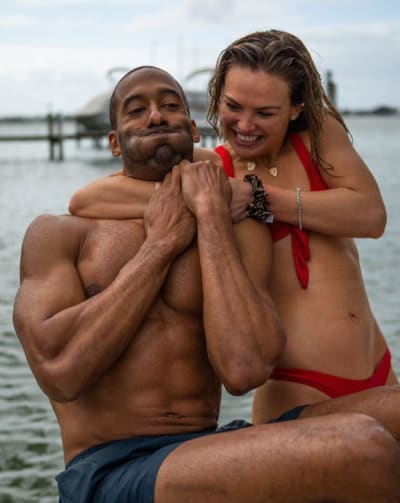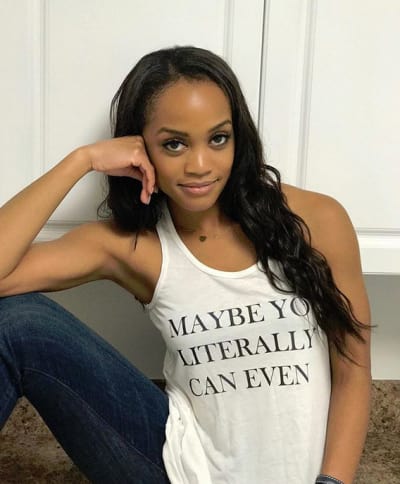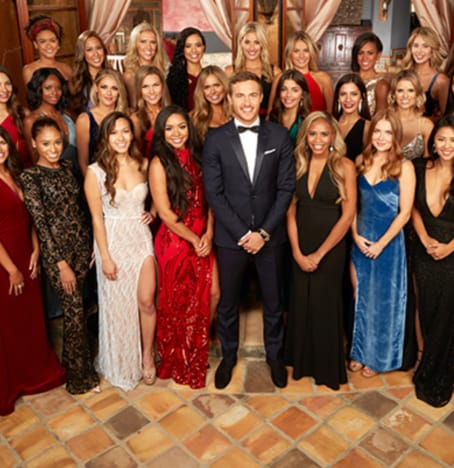The Bachelor Quietly Cast "Token" Minorities, Banned "Black" Hairstyles, Ignored Calls For Change, Producer Accuses
As happy as we all are that ABC has cast their first-ever black Bachelor for Season 25, to many, it seems like too little, too late.
Adding her voice is a former producer who describes a set of appallingly racist casting rules that kept many women of color off of the show.

Jazzy Collins is a reality TV casting producer who currently works on Netflix's must-see hit, The Circle.
Previously, she worked on The Bachelor and The Bachelorette, casting suitors on both shows ... within some egregious limitations.
"I am a Casting Producer who previously worked on The Bachelor and Bachelorette series for five seasons,” she begins in an Instagram post.
In the lengthy letter, she calls out the franchise for harmful patterns and policies.

“During my time at The Bachelor/Bachelorette," Jazzy laments, "I was the only Black person in the casting office."
She writes that this was the case "from when I was hired for casting the first season of Black ‘Bachelorette’ through the four seasons I worked on afterwards."
"While working on Rachel Lindsay's season of the show," Jazzy recalls, "we were called on to have a very diverse cast."
"It was my first season of the show," she reflects, "and I was excited to be an integral part of the show's history."
"My hope was that having a racially diverse cast of gentleman would be an important milestone," Jazzy expresses.
She hoped that this would be a trend "that would continue into the future.”
Jazzy regrets. “That was not the case."
"After finishing Rachel Lindsay's season ... it went back to status quo," she notes, referring to Arie Luyendyk Jr.'s season.

"The cast was predominantly white," Jazzy points out of Arie's infamous season.
She adds: “The only Black women who were picked to be in the running had weaves or chemically straightened hair."
Jazzy continues, saying that these women "were ‘ethnically ambiguous’ or were not considered ‘too Black.'"
"Women with afros, braids, locs, etc weren't even given a chance because of the white standards of beauty," she laments.
White European beauty standards are pervasive and pernicious in our society.
They infiltrate our thoughts and values and encourage us to view alternative aesthetics, hairstyles, and other style choices as "strange."
These standards are written into policies, gatekeeping people from gaining employment because their hairstyles are deemed "unprofessional."
The same absurd standards that reinforce white supremacy at customer service jobs

"Once I developed a voice for myself in the office to speak out on issues," Jazzy recalls, "I was hit with many microaggressions."
She notes that the response was unkind and full of racially evocative language, "including being called 'aggressive.'"
"I felt alone," Jazzy characterizes her time on the show.
In fact, she describes walking through the production office and only seeing three black people.
"Your show has white-washed for decades, inside and out,” Jazzy accurately describes the franchise.
When a piece of media looks whiter than reality, it is white-washed.
“Your head of post-production is white," she notes. "Your casting director is white. Your executive in charge is white."
"You only cast the token black person, Asian person, or Latinx person to satisfy what you believe to be the needs of the viewers," Jazzy accuses.

"Many have called for a black Bachelor for years," Jazzy writes, "but you ignored it."
"It took a pandemic and the Black Lives Matter movement to take a moment and reassess the situation at hand," she notes.
"I am calling on you to select a diverse cast and production team for Season 25 of ‘The Bachelor’ and moving forward,” Jazzy expresses.
And there are many reasons for which that would be valuable.
“Not only is it important to have a diverse cast reflect what the rest of America looks like," Jazzy explains.
She emphasizes: "it’s important for the production and casting teams to be able to share the same experiences as the cast members."
That means that having production assistants, lighting crews, and other people of color working will make the show more inclusive.
And, quite frankly, it will mean that suitors of color who are cast can be treated with more understanding and less ignorance.
Read More





No comments